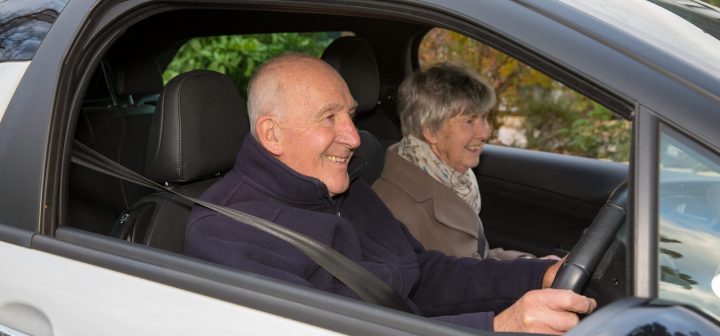Almost half (46%) of Brits have had to have a difficult conversation with an older relative about stopping driving.
One third (35%) admitted to feeling anxious and unsafe whilst being driven around by their seniors, and a fifth (20%) noticed new dents or scratches on their car.
Half (50%) had broached the conversation with their loved one’s best interests at heart, stating that they wanted to ensure their older relative’s safety, while one in three (29%) were compelled to speak up after noticing their reactions or judgement whilst driving seemed slower than before.
Almost half (46%) were relieved once the conversation had been had.
The research, by the UK’s leading road safety charity IAM RoadSmart, highlights the need to review the system for licence renewals and give older drivers and their families more support.
Currently, people in the UK must renew their driving licence from the age of 70 every three years.
The system relies on self-declaration that the driver meets the required eyesight standards for driving, and a disclosure of any medical condition that might affect driving.
More than half (60%) said that the key to success was speaking calmly and expressing care, while a similar number (47%) felt it was important to ask the person about their own feelings around driving.
Of those that had not yet broached the subject, a quarter would avoid the conversation altogether as they wouldn’t want to risk upsetting or offending the older relative (25%), while one in ten (9%) think their concerns would go unheeded anyway.
Nearly four in ten (38%) said they would feel more comfortable having the chat if they were armed with evidence of unsafe driving.
Warning signs that would prompt loved ones to speak out include near misses or minor collisions (62%), difficulty seeing road signs or markings (61%), and driving either too slowly or too fast (53%).
Almost a third (27%) would prefer a professional to lead the conversation, and close to a quarter (23%) would welcome a review by a driving instructor.
More than half (52%) recognised that losing one’s independence or freedom was a top fear that older people have about giving up driving.
Additional research by IAM RoadSmart of 2,053 drivers in the UK found that 85 percent support compulsory eye-testing for those over 70 when they renew their licence every three years, and more than half (57%) support a requirement to pass a theory and practical test to continue driving at the age of 70.
This increased when considering a driver’s age, with eight in ten (77%) supporting measures that would require all drivers aged 85 and over to take a compulsory practical retest to renew their licence.
Between ages 17 and 70, the rate of drivers involved in collisions generally falls with driver age.
The rate increases for the over 70s, before rising sharply to the highest rate for drivers 85 and over.
IAM RoadSmart Director of Policy and Standards Nicholas Lyes said, “We know that for many over 70s, their car is a lifeline; a way of maintaining their independence and their social life, especially in rural areas where public transport can be lacking.
“Moreover, many older drivers are safe and considerate drivers. However, with age can come change in driving ability, whether through health, reaction times or confidence.
“While we all worry about our relatives’ safety, many fret over needing to chat with them about their driving for fear of causing offence. Others simply don’t know how to go about it, and what’s really concerning is that many are waiting until they notice new dents on the car before saying something.
“The Government’s updated road safety strategy must ensure independence and safety are balanced equally. Moves to strengthen eyesight requirements would be welcome but this should go together with funding to help people undertake voluntary mature driver courses. By doing so, it will support older people to improve their skills and confidence on the road, promoting safe independence for over 70s.”
